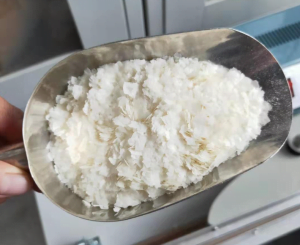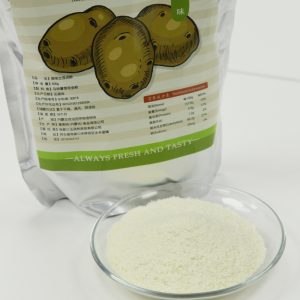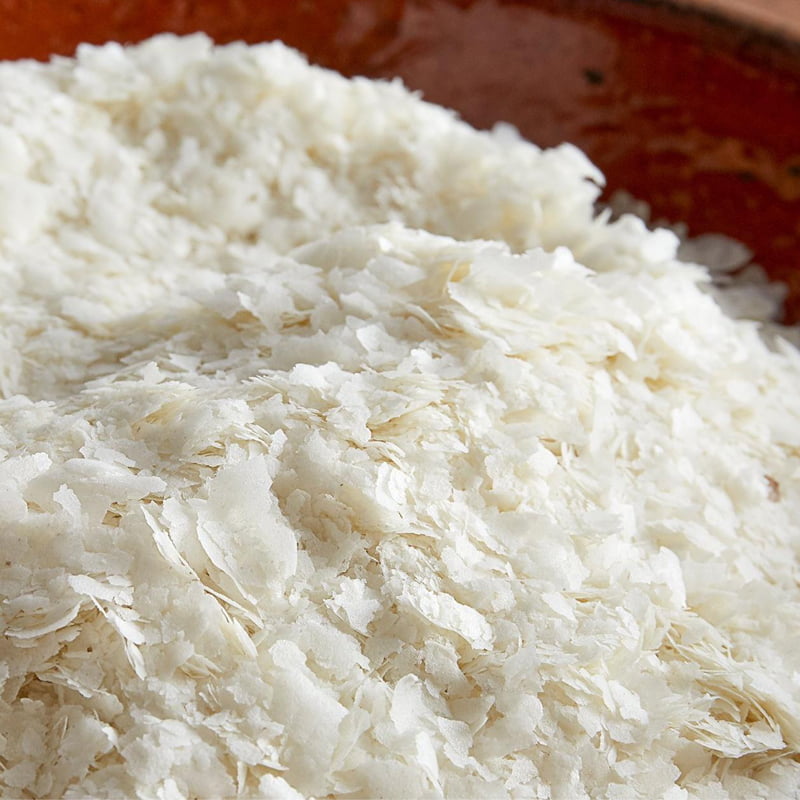Serpihan kentang, although long considered an important food additive and ingredient used to adjust the overall taste and appearance of food, actually have substantial nutritional value, which we often overlook.
In 2015, China began a strategy to make potatoes a staple food, meaning potatoes would become a main part of the diet for 1.4 billion people. Among these, potato flakes have become the most important ingredient. This large-scale use of potato flakes proves their health benefits and nutritional value.

The nutritional structure of potato flakes
| Nutrien | Amount |
|---|---|
| Tenaga | 1486 kJ (355 kcal) |
| Protein | 8.4 g |
| gemuk | 0.5 g |
| Karbohidrat | 82.7 g |
| Minerals | |
| natrium (Na) | 71 mg |
| Phosphorus (P) | 170 mg |
| Potassium (K) | 980 mg |
| Magnesium (Mg) | 100 mg |
| Calcium (Ca) | 35 mg |
| Iron (Fe) | 0.8 mg |
| Zinc (Zn) | 12.5 mg |
| Iodine (I) | 25 µg |
| Selenium (Se) | 1.4 µg |
| Copper (Cu) | 0.35 mg |
| Vitamins | |
| Vitamin B1 (Thiamine) | 0.11 mg |
| Vitamin B2 (Riboflavin) | 0.25 mg |
| Vitamin B6 | 0.42 mg |
| Vitamin C (Ascorbic Acid) | 25.9 mg |

Nutritional Structure Analysis
Based on the nutritional structure of potato flakes, we can find out that:
Karbohidrat
Carbohydrates make up the majority of the total energy in potato flakes. The high carbohydrate content makes potato flakes an energy-dense food source, suitable as a staple food or an energy supplement.
Protein
Although the protein content in potato flakes is relatively low, it is of high quality, containing all essential amino acids.
Minerals and Vitamins
Potato flakes are rich in minerals such as potassium, phosphorus, and magnesium, as well as B vitamins and vitamin C. These nutrients are crucial for maintaining heart health, nervous system function, immune system strength, and skin health.
gemuk
The fat content in potato flakes is extremely low, which is one of its main characteristics. The low-fat content can help control overall caloric intake. Many people use lightly seasoned mashed potatoes as a meal replacement to help control weight.
Ringkasan
Oleh itu, we can consider potato flakes to be a nutritionally rich food. However, their nutritional content is not balanced, so dietary adjustments are needed and they cannot replace other foods entirely. On the other hand, potato flakes have significant advantages as a staple food, but one drawback is that they are relatively more expensive compared to rice and wheat.
